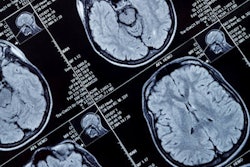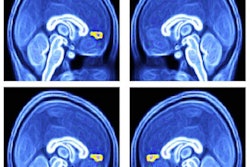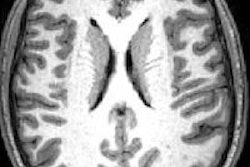MRI scans revealed that the social impairment common to children with autism is associated with structural and functional deficits in the mesolimbic social reward circuit of the brain, according to an article published online July 17 in Brain.
Researchers from Stanford University School of Medicine acquired the brain MRI scans of 84 children ages 8 to 13 years, some of whom had autism, as they looked at pictures of scenery (nonsocial) or faces (social). Comparing the scans, they discovered that the density of nerve-fiber tracts in the mesolimbic reward pathway of the brain was markedly lower in the children with autism than in those without it. They confirmed this finding in an additional study that included a cohort of 32 different children.
Children with autism have reduced structural connectivity in the mesolimbic pathway, which connects two brain areas critical for processing social reward, senior author Vinod Menon, PhD, said in a press release from the university.
"We were surprised we could trace deficits in social skills to a very simple, almost primordial circuit," Menon said. "Our findings suggest that this is a brain system that should be targeted early in clinical treatments."



.fFmgij6Hin.png?auto=compress%2Cformat&fit=crop&h=100&q=70&w=100)




.fFmgij6Hin.png?auto=compress%2Cformat&fit=crop&h=167&q=70&w=250)











